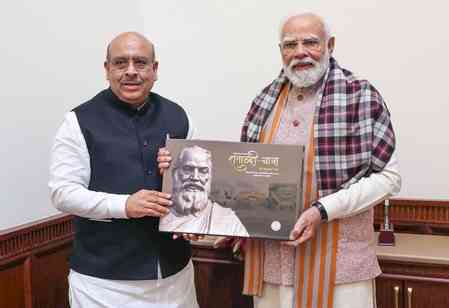Natural Disasters and Their Impact on Society
Every year, crores of rupees are spent on safety measures to manage rivers and control floods caused by heavy rains. Despite these efforts, the outcome is often less than satisfactory. Many countries across the globe experience severe rains, resulting in devastating floods that lead to significant loss of property and life.

Every year, crores of rupees are spent on safety measures to manage rivers and control floods caused by heavy rains. Despite these efforts, the outcome is often less than satisfactory. Many countries across the globe experience severe rains, resulting in devastating floods that lead to significant loss of property and life.
To protect human lives and fertile agricultural land from floodwaters, the Irrigation Department (Water Resources) formulates various plans. District administrators visit affected sites for on-the-spot assessments and sanction funds to protect life and property by building or repairing embankments, temporary spurs, and studs. These structures are crucial for preventing erosion of fertile agricultural land. It is essential to establish a unified policy at the national level that states are required to implement. This policy should address floods, global warming, climate change, and flood prevention measures across the country. Dams have been constructed worldwide to channel rivers for irrigation purposes.
Environmental scientists predict that climate change and global warming will lead to glacier melting and rising sea levels, posing a future threat to many small islands. Heavy rains, encroachment on riverbanks, and excessive removal of natural resources like sand, gravel, and boulders from riverbeds exacerbate flooding and destruction of fertile agricultural land and property.
In recent years, snowstorms have become more frequent worldwide. This phenomenon is largely due to deforestation in mountainous regions and the transformation of green jungles into concrete jungles. Rapid population growth, vehicle emissions, and a focus on infrastructure development over ecological balance contribute to this issue. Indian Prime Minister Narendra Modi, during his "Mann Ki Baat" radio program, urged people to plant a sapling in their mother's name. It would be even more impactful if he encouraged planting saplings in the names of both parents and newborn children, ensuring that future generations benefit from the trees' growth. This initiative could help manage pollution and mitigate climate change and global warming.
Additionally, the use of sophisticated weapons during wars contributes to global warming and climate change. Global leaders should engage in peace talks to prevent the use of such weapons, which create havoc for humans and devastate economies and infrastructure.
Nature is supreme, and humans must take responsibility for addressing climate change. We should adopt measures recommended by environmental scientists and the government. Failure to do so will result in facing the destructive consequences of nature's wrath.
Authored by:
Rajat Kumar Mohindru
Journalist,
Jalandhar City.


 Rajat Kumar
Rajat Kumar 











